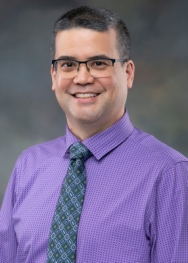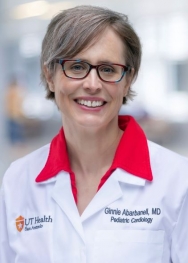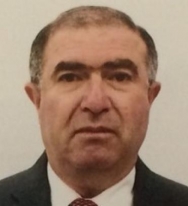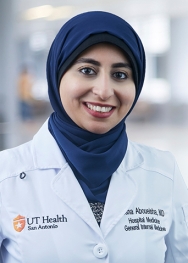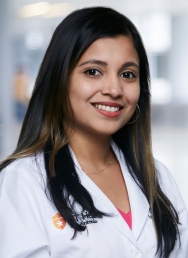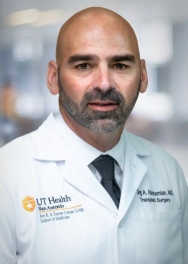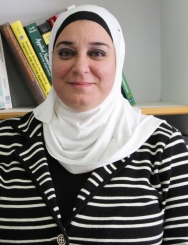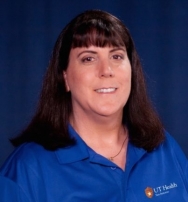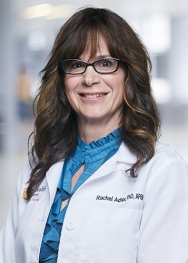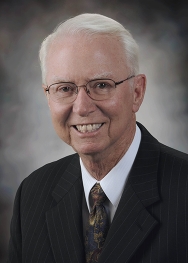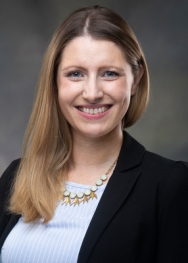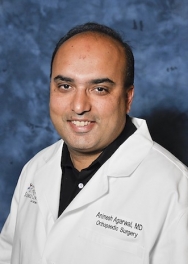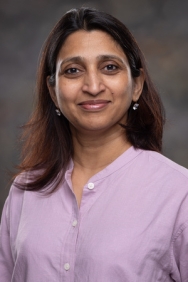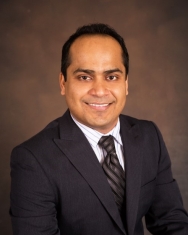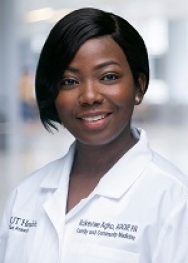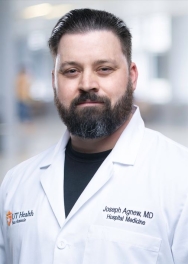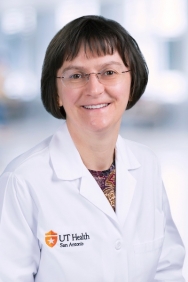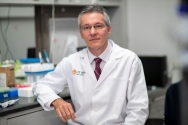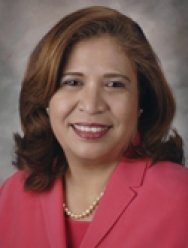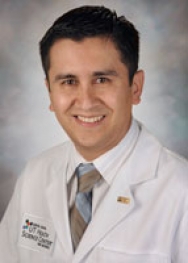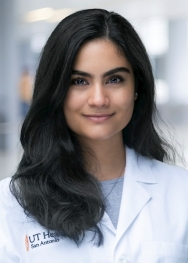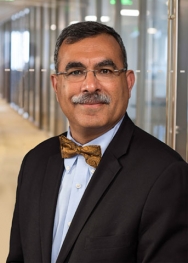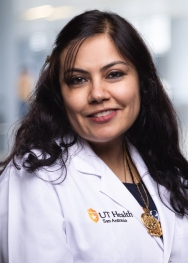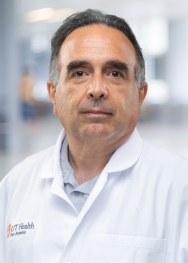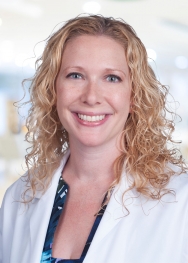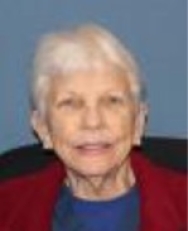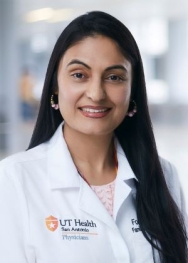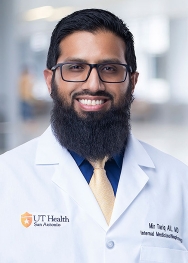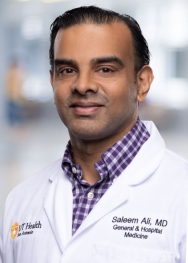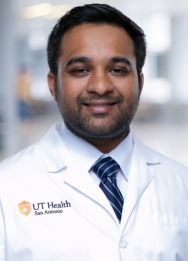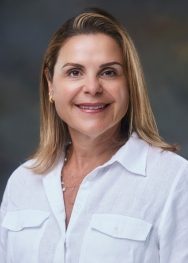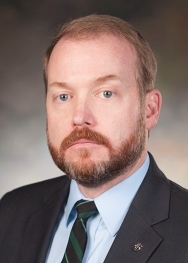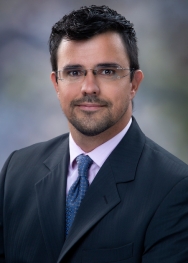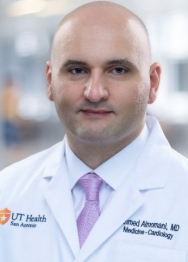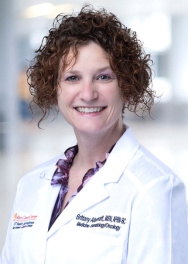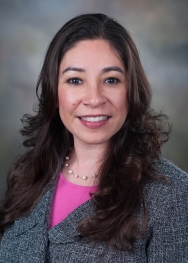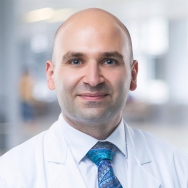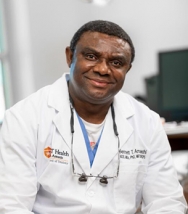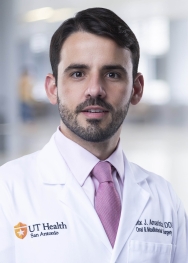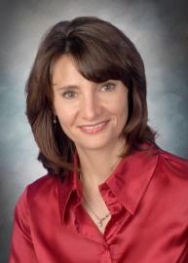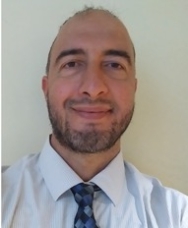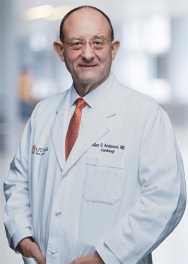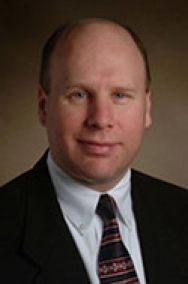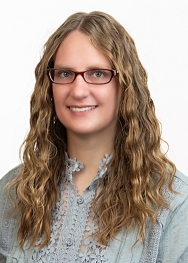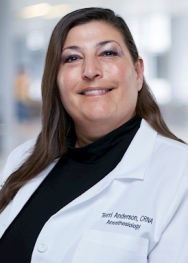Faculty Directory
Displaying 1 - 50 of 2162
Aaron M. Abarbanell MD, MSCR
Programs
- M.D. in Doctor of Medicine
Departments & Divisions
- Department of Cardiothoracic Surgery
- Department of Pediatrics
- Division of Pediatric Cardiology
Ginnie L Abarbanell MD
Programs
- M.D. in Doctor of Medicine
Departments & Divisions
- Department of Pediatrics
- Division of Pediatric Cardiology
Muhammad Abdul-Ghani MD, PhD
Programs
- M.D./Ph.D. in South Texas Medical Scientist Training Program
- Ph.D. in Integrated Biomedical Sciences
- Physiology and Pharmacology
Departments & Divisions
- Department of Medicine
- Division of Diabetes
Aesha Aboueisha MD
Programs
- M.D. in Doctor of Medicine
Departments & Divisions
- Department of Medicine
- Division of General Internal Medicine
- Division of Hospital Medicine
Soniya Abraham MD
Programs
- M.D. in Doctor of Medicine
Departments & Divisions
- Department of Medicine
- Division of Hospital Medicine
Gregory A Abrahamian M.D. (LtCol USAFR)
Programs
- M.D. in Doctor of Medicine
Departments & Divisions
- Department of Surgery
Sandra G Adams MD, MS, FCCP
Programs
- M.D. in Doctor of Medicine
Departments & Divisions
- Department of Medicine
- Division of Pulmonary Diseases & Critical Care Medicine
Gina Aeckersberg MD
Departments & Divisions
- Department of Pediatrics
- Division of Pediatric Nephrology
Animesh Agarwal M.D.
Programs
- M.S. in Biomedical Engineering
- Ph.D. in Biomedical Engineering
Departments & Divisions
- Department of Orthopaedics
Nitendra P Agarwal MD
Programs
- M.D. in Doctor of Medicine
Departments & Divisions
- Department of Medicine
Joseph W. Agnew MD, CPH
Programs
- M.D. in Doctor of Medicine
Departments & Divisions
- Department of Medicine
- Division of Hospital Medicine
Ildiko Agoston MD, FACC, FASE
Programs
- M.D. in Doctor of Medicine
Departments & Divisions
- Department of Medicine
- Janey & Dolph Briscoe Division of Cardiology
Ricardo Aguiar M.D., Ph.D.
Programs
- M.D./Ph.D. in South Texas Medical Scientist Training Program
- Ph.D. in Integrated Biomedical Sciences
- Molecular Immunology & Microbiology
Departments & Divisions
- Department of Medicine
- Division of Hematology & Oncology
Christine Aguilar M.D., MPH
Departments & Divisions
- Department of Pediatrics
- Division of Pediatric Hematology-Oncology
Alfonso Aguilera D.D.S.
Programs
- Advanced Education in General Dentistry
Departments & Divisions
- Department of Comprehensive Dentistry
Ameer Ahmed MD
Programs
- M.D. in Doctor of Medicine
Departments & Divisions
- Department of Medicine
- Division of Hospital Medicine
Sunil K Ahuja M.D.
Programs
- M.D./Ph.D. in South Texas Medical Scientist Training Program
- M.S. in Clinical Investigation & Translational Science
- M.S. in Immunology & Infection
- Ph.D. in Integrated Biomedical Sciences
- Molecular Immunology & Microbiology
Departments & Divisions
- Department of Medicine
- Division of Infectious Diseases
Asra Akbar MD
Departments & Divisions
- Department of Neurology
- Department of Pediatrics
- Division of Child Neurology
Armen N. Akopian Ph.D.
Programs
- M.D./Ph.D. in South Texas Medical Scientist Training Program
- Ph.D. in Integrated Biomedical Sciences
- Neuroscience
- Physiology and Pharmacology
Departments & Divisions
- Department of Endodontics
Alexandriah N Alas MD
Departments & Divisions
- Department of Obstetrics & Gynecology
- Division of Female Pelvic Medicine and Reconstructive Surgery
- Division of Gynecology Oncology and Urogynecology
Joseph F Alderete MD, FAOA
Programs
- M.D. in Doctor of Medicine
Departments & Divisions
- Department of Orthopaedics
Peggy P. Alexander D.D.S., M.P.H.
Programs
- D.D.S. in Doctor of Dental Surgery
- M.P.H. (Master of Public Health)
Departments & Divisions
- Department of Comprehensive Dentistry
Mir Tariq Ali MD
Programs
- M.D. in Doctor of Medicine
Departments & Divisions
- Department of Medicine
- Division of Nephrology
Saleem Ali MD
Programs
- M.D. in Doctor of Medicine
Departments & Divisions
- Department of Medicine
- Division of Hospital Medicine
Ana Allegretti Ph.D., OTR, ATP
Programs
- O.T.D. (Doctor of Occupational Therapy)
Departments & Divisions
- Department of Occupational Therapy
Paul B. Allen Sr., DSc, MPAS, PA-C, FAAPA
Programs
- M.P.A.S. (Master of Physician Assistant Studies)
Departments & Divisions
- Department of Physician Assistant Studies
Gustavo J Almeida PT, Ph.D.
Programs
- D.P.T. (Doctor of Physical Therapy)
Departments & Divisions
- Department of Orthopaedics
- Department of Physical Therapy
Ahmed Almomani MD, FACC FSCAI
Programs
- M.D. in Doctor of Medicine
Departments & Divisions
- Department of Medicine
- Janey & Dolph Briscoe Division of Cardiology
Brittany Altermatt MS, RN, ANP-BC
Departments & Divisions
- Department of Medicine
- Division of Hematology & Oncology
Judy Ann Alvarado M.Ed., R.D.H.
Programs
- M.S. in Dental Hygiene
Departments & Divisions
- Department of Periodontics
Bennett Tochukwu Amaechi B.D.S., M.Sc., Ph.D., MFDS RCPS (Glasg), FADI
Programs
- M.S. in Clinical Investigation & Translational Science
- M.S. in Dental Science
Departments & Divisions
- Department of Comprehensive Dentistry
Felix J Amarista DDS
Programs
- Oral & Maxillofacial Surgery Residency
Departments & Divisions
- Department of Oral & Maxillofacial Surgery
Patricia A Amerson MSN, CPNP
Departments & Divisions
- Department of Pediatrics
- Division of Pediatric Hematology-Oncology
Kambiz David Amini DDS
Programs
- D.D.S. in Doctor of Dental Surgery
Departments & Divisions
- Department of Comprehensive Dentistry
Sarah B. Ammerman Ph.D.
Programs
- M.S. in Deaf Education and Hearing Science
Departments & Divisions
- Department of Otolaryngology-Head & Neck Surgery
Allen S Anderson MD, FACC FAHA
Programs
- M.D. in Doctor of Medicine
Departments & Divisions
- Department of Medicine
- Janey & Dolph Briscoe Division of Cardiology
Sarah Anderson ACNPC-AG
Programs
- B.S. in Nursing: Traditional Track
- M.S. in Nursing
Departments & Divisions
- Department of Medicine
- Division of Hospital Medicine
- 1 of 44
- next ›
